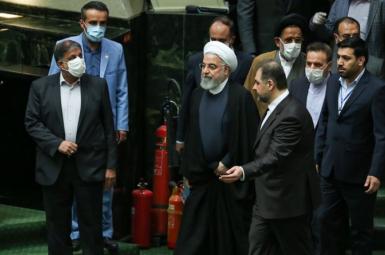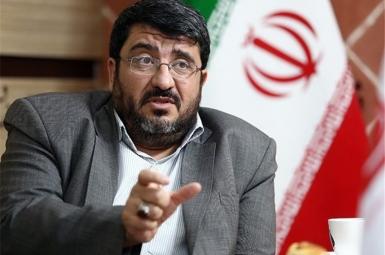
Rouhani Speaks On JCPOA, Execution Of Journalist And Oil Exports
Iran’s President Hassan Rouhani reiterated several times during a news conference on Monday December 14 that Iran was ready to again implement the limits on its nuclear program required by its 2015 deal with world powers as soon as United States returned to the agreement, known as the Joint Comprehensive Plan of Action (JCPOA).
Rouhani said that Iran had experienced the most difficult situation in a century, caused by what he called a US “economic war on Iran,” a reference to draconian sanctions on Iran’s oil exports and financial sector imposed after US President Donald Trump in 2018 announced Washington would no longer respect the JCPOA.
Rouhani said Iran was resolved to sell 2.3 million barrels a day of oil and condensates in the fiscal year 2021-2, some directly through export and some through a domestic commodity exchange. The draft government budget recently presented to parliament for next year, beginning on March 21, assumes oil sales reaching this level.
Rouhani stressed the importance of sanctions being lifted, which was “a right for the [Iranian] people,” and warned critics of the JCPOA and rivals in Iran that they would not be allowed “to delay the ending of US sanctions.”
Rouhani said that discussions were continuing over the Iranian parliament’s recent legislation calling for boosting uranium enrichment and reducing co-operation with United Nations nuclear inspectors if sanctions were not eased within two months. “I do not believe this is a useful legislation,” he said. “However, I will carry it out. I have already called for an executive by-law to facilitate the implementation of the bill. Hopefully, this will be discussed and possibly approved at the cabinet meeting on Wednesday.”
Asked whether the execution on December 12 of dissident journalist Ruhollah Zam would damage Iran’s relations with Europe, Rouhani repeated the usual rhetoric that this was a judicial matter. “We do not care if some people like or dislike the verdict issued by the court,” he said. “Iranian law recognizes capital punishment and Iran’s judiciary is independent.”
Rouhani suggested that Zam had been “serving foreigners’ interests” and that “Europe’s sensitivity to the death verdict against Zam might mean intervention in Iran’s internal affairs and that Zam.” But he said it was unlikely that the execution would adversely affect Iran’s relations with EU.
During the past two days, the EU as well as several member states including France, Germany, Austria and Italy have condemned both Zam’s death sentence and a lack of due process. Europe’s long-standing policy is that both Iran and the US should return to their obligations under the JCPOA, which Rouhani has consistently suggested can be a relatively straightforward process: he reiterated that Tehran did not see renewal as conditional on other issues, including Iran’s missile program.
Twelve Iranian media outlets and the representatives of the Tehran bureaus of five international media outlets including China’s CCTV and Qatar’s Al-Jazeera attended the news conference. While this was Rouhani’s first public appearance in several months without a mask, the moderator of the news conference said that the number of reporters had been kept at a minimum due to public health regulations over coronavirus.
Rouhani did not seem in the mood to challenge conservative reporters' often tough questions about the state of the economy. Instead, Rouhani appeared to evade challenging questions.








